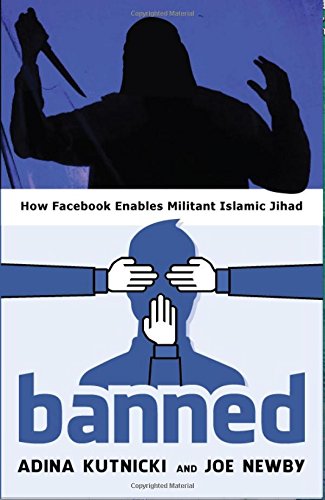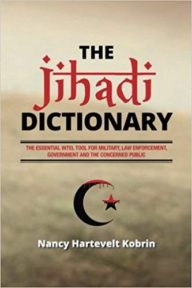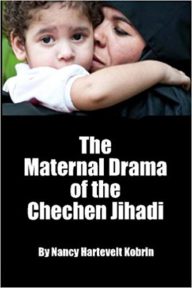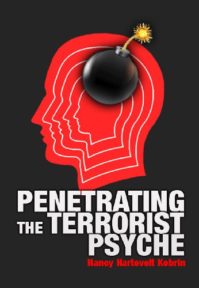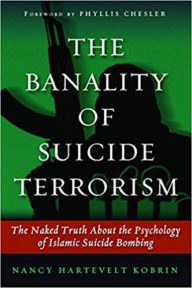
Global Movement for Power Grab by the Few Over the Many Hits Israel’s Supreme Court, Threatening the “Quiet End of Democracy”
PROLOGUE BY LISA MICHELLE
An authoritarian push by the few to rule over and trample on the individual freedoms and rights of the many has hit the international stage in once democratic societies. Such is the case now in Israel by its Supreme Court. If successful, it will end democracy for the tiny Jewish State the size of New Jersey and endow its highest court with the supreme power to both legislate and judge.
“Today,” tweets American-born Israeli journalist and author Caroline Glick, “Israel’s psychotically activist Supreme Court is effectively ending Israeli democracy. . . . To end this insanity, Israel doesn’t simply need 61 MKs [members of the Knesset] to curtail the tyrannical court. It needs political leaders willing to ignore the Court’s rulings.”
Today, Israel's psychotically activist Supreme Court is effectively ending Israeli democracy. For details, read below.
— Caroline Glick (@CarolineGlick) December 22, 2020
To end this insanity, Israel doesn't simply need 61 MKs to curtail the tyrannical court. It needs political leaders willing to ignore the Court's rulings. https://t.co/9LqDrPQSS5
Sound familiar?
At a time when Americans have seen the increasing collapse of checks and balances and separation of powers — when the courts, from the lowest to the highest in the land, have denied the fundamental right of due process based on lack of standing (as in the “Texas Challenge” case); when holidays have been cancelled, religious institutions, schools, small businesses, and entire industries have been forced into shutdowns and the elderly have been herded into nursing homes to die in isolation for an invisible disease that corrodes the spirit more than the body and has deprived us of the most basic human aspects of dignity and life; when the violation of election laws and subpoenas have been completely ignored by maniacal ruling-class oligarchs in Washington and by state and local government officials who have almost unilaterally rejected the will of the people or who are too weak to stand up to the tyrants and the masses; and when public information and discourse are controlled and censored by a ubiquitous corporate and big-tech media conglomerate — the following should serve as a glaring warning signal to us all. It is a microcosm of a grander universal scheme by the few to grab the power of the many and to lead us into tyrannical rule — in the case of Israel, through judicial supremacy.
Israel, the only true democracy in the Middle East, often serves as a mirror, reflecting back at us. For this reason, Iran’s death knell targets both the “Little Satan” (Israel) first and then the big one (the United States).
♦ ♦ ♦ ♦ ♦ ♦
The Assault on Israel’s Constitution
The Supreme Court bizarrely seeks to destroy its own brainchild
BY EUGENE KONTOROVICH AND SHIMON NATAF | TABLET MAGAZINE | DECEMBER 09, 2020
AMERICAN JEWS HAVE in recent years heard mounting warnings about the erosion of democracy in Israel and threats to the rule of law. In the coming weeks, Israel stands on the verge of a profound political revolution. This attack on Israel’s constitutional system, however, has received almost no public attention, because it has come from an unexpected source—the judges of the Supreme Court that invented the constitutional system in the first place. On Dec. 22, the court, which has struck down many laws as unconstitutional, will try something much more radical—considering whether parts of Israel’s constitution itself are, in its view, worthy of continued validity.
To be sure, Israel does not actually have a written constitution; it never got around to creating one in the existential crisis of its creation. Afterward, no set of principles could be agreed on by Israel’s fractious social segments. However, the Knesset would go on to pass measures called “Basic Laws.” These went though exactly the same process as ordinary legislation, and formally had no special status—their name came not from any foundational strength they had, but because they dealt with basic or fundamental issues of governmental organization, such as the structure and powers of the Knesset, the judiciary, the army, and other governmental functions.
In what would come to be called the “Constitutional Revolution” of 1995, the Supreme Court created the notion of “Basic Laws” as having constitutional status, and thus took for itself authority to overturn “ordinary” Knesset legislation as being “unconstitutional.” In its momentous “Mizrahi Bank” decision, the Supreme Court announced that Israel had a constitution. According to the court, the Knesset has an implicit constitution-making power—what it termed a “Constitutive Power.” The court revealed that the Knesset had used that power to enact the Basic Laws. This is how former Chief Justice Aharon Barak explained it in his opinion:
We desired to give ourselves a constitution, one that would limit the majority’s power in order to preserve Israel’s principles as a Jewish and Democratic state. This choice was not made by the justices. It was made by the People.
The court’s argument was focused on the Basic Law on Human Dignity and Freedom, which passed in the Knesset by a small majority of 32 to 21, in the middle of the night, during the run-up to an election. The decision was hardly even discussed in the media. The Knesset never claimed to be exercising a “constitutive power.” No one in Israel knew that it had just established a constitution, notable primarily for its vagueness and the bluntness of the weapon it would provide to the court. That is, no one but the court.
Once the Knesset learned from the court that its own Basic Laws had constitutional force, and would override all other Knesset legislation, it took a more serious approach to making such measures. It passed some new Basic Laws, and revised old ones. The pinnacle of these efforts was the constitution of “the Basic Law: Israel the Jewish Nation State,” enshrining Israel’s Jewish identity as a constitutional norm.
Unlike prior Basic Laws, the Nation State law offered little room for free-form judicial policymaking. The new Basic Law provided clear principles about Israel’s identity that would actually narrow the court’s ability to implement its policy preferences through the open-ended term “human dignity.” Unlike prior Basic Laws, the substantive content of the Nation State Law was anathema to the justices’ cosmopolitan worldview. In short, the Knesset had passed its clearest and most deliberated constitutional measure—but not one that the justices would have voted for had they been legislators.
On Dec. 22, the court will hear challenges to the constitutionality of the Nation State Basic Law. By agreeing to hear such challenges, the court is suggesting that while Basic Laws are enacted through the sovereign power of the people, there is some law even higher than these Basic Laws. And the only body with the authority to determine the contents of the invisible “higher law” is the court itself. In other words, since according to the court, such Basic Laws constitute Israel’s patchwork constitution, the court believes that it has the power to strike down the constitution as unconstitutional.
The Nation State law was just the start. The court has recently issued orders claiming jurisdiction over the constitutionality of changes in the Basic Laws regarding government structure that were enacted by the Knesset to implement the recent national unity government arrangement. The court’s orders have suggested that such constitutional amendments can be struck down if the court believes they were adopted “in bad faith,” whatever that means. Most likely, the court will uphold all or most of these measures—but by simply agreeing to hear cases about the constitutionality of the constitution, the court positioned itself formally and openly as supreme over the Israeli legal system.
In leading Western countries, the notion that courts can weigh in on the constitutionality of the constitution has been rejected, even as regards constitutional amendments. No country in the world accepts the idea of the judiciary reviewing the constitution itself for “bad faith.”
Former Chief Justice Aharon Barak has recently tried to argue that the Declaration of Independence gives the Supreme Court the power to overrule Basic Laws. Faced with Basic Laws he does not like, Barak has now discovered that the Declaration was actually a constitutional document all along, limiting the Knesset’s power, while giving the court an even broader mandate to strike down laws, even Basic Laws.
Needless to say, the Declaration contains no such statement. Moreover, Barak’s new theory abandons the principle behind his own Mizrahi Bank decision. When convenient, we’re told that the Basic Laws derive from the people. When it is less so, we’re suddenly informed that they derive from the Provisional State Council—the long-forgotten temporary assembly that issued the Declaration. Israeli law from the founding of the state has not regarded the Declaration of Independence as a legally binding document for use in judicial review, but only as an interpretive tool. As with the American Declaration of Independence, it was a political document intended primarily for foreign audiences, and lacked all of the deliberation and careful drafting expected of a constitution. Not only is the constitutional basis for this idea absurd, but more importantly, the claim itself presumes that the supreme principle in the Israeli legal system is not democracy but the court. The Declaration of Independence was never voted upon by the Israeli people or the Knesset and, not being a constitution, has no provisions for amendment.
The judicial revolution of 1995 was clothed in the language of popular sovereignty and limited judicial power. Today, the court is revealing that to have been just a façade, and a stepping stone to naked judicial supremacy.
Eugene Kontorovich is a professor at George Mason University Scalia Law School, and the head of the International Law Department at the Kohelet Policy Forum.
Shimon Nataf is an attorney and a research associate at the Kohelet Policy Forum.
Caroline Glick is an American-born Israeli columnist, journalist, author, adjunct senior fellow for Middle Eastern Affairs, and directs the Israeli Security Project at the David Horowitz Freedom Center. In 2019, she was a candidate on Israeli political party New Right’s list for Knesset.
- Pot Calls Kettle Black: Joe Biden, the Smartest Dude in Town, Says Unvaccinated Federal Employees are Not So Smart, and Doocy Asks a Doozy of a Question (Videos) - 07/30/2021
- VIDEO: Whistleblower Exposes Google as Acting as a ‘Foreign Intelligence Propaganda Outlet’ - 07/23/2021
- House Speaker Pelosi Strikes Down Minority Leader McCarthy’s GOP Picks for January 6 Committee - 07/23/2021


